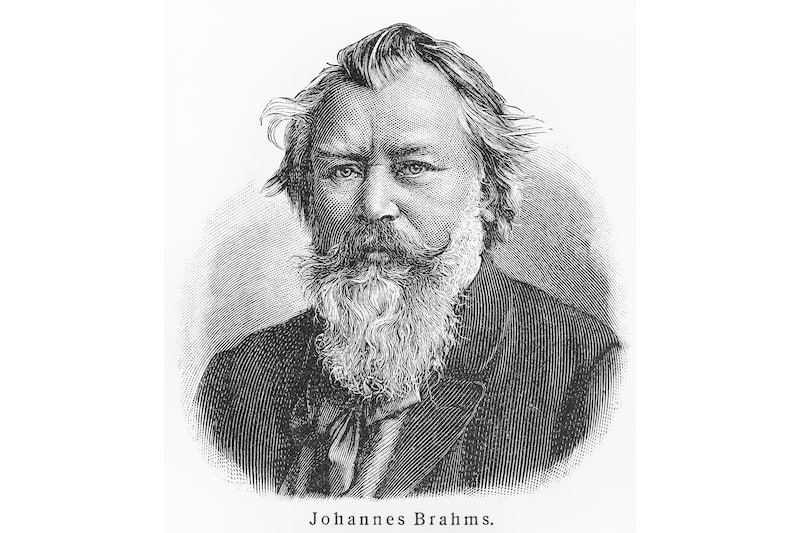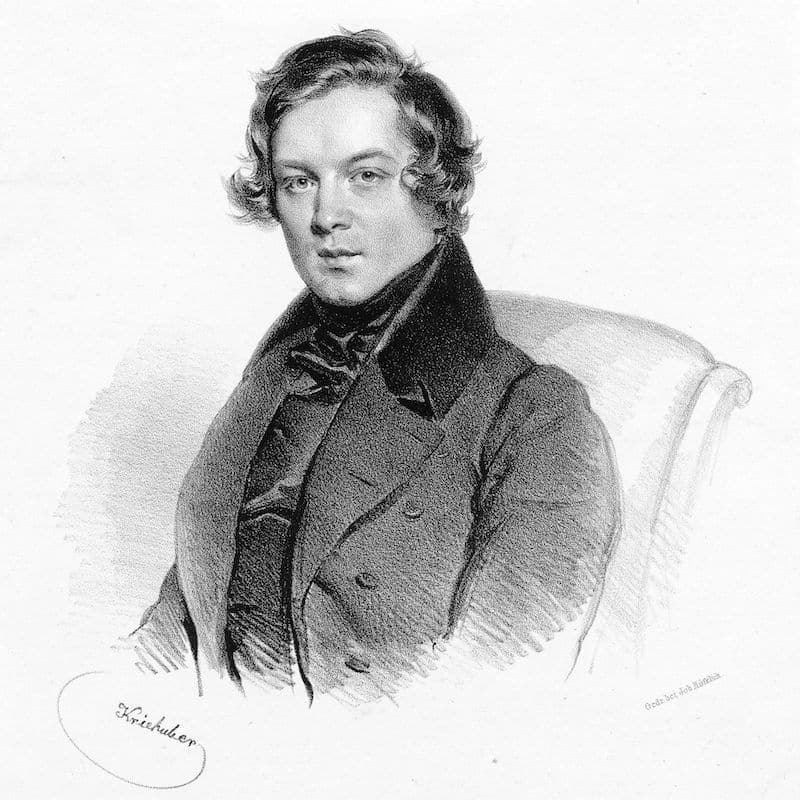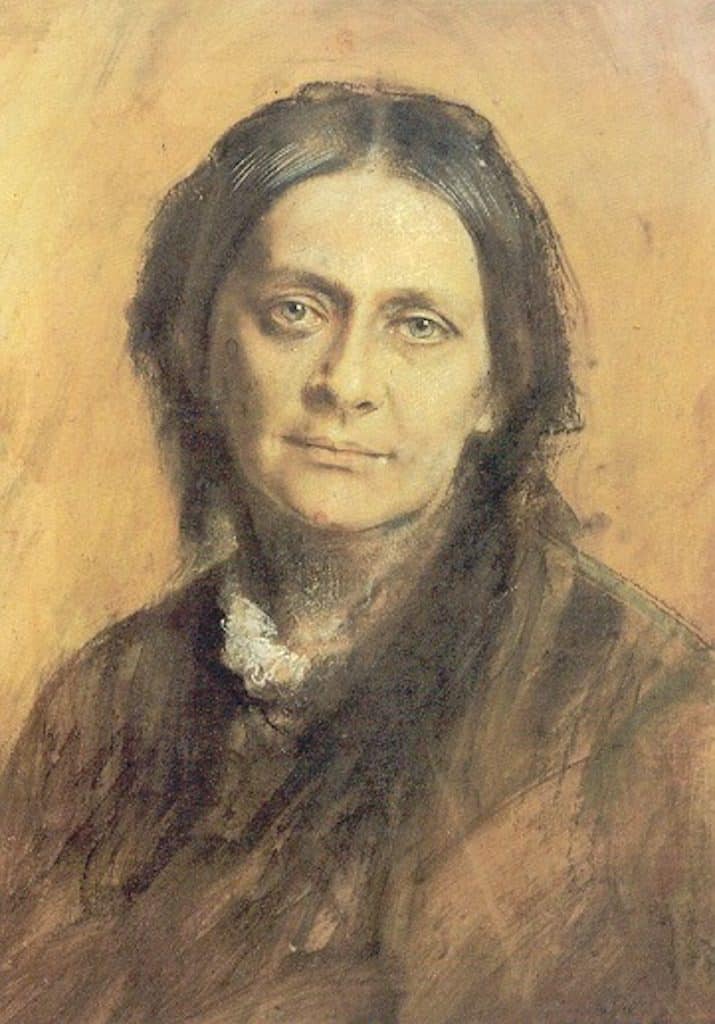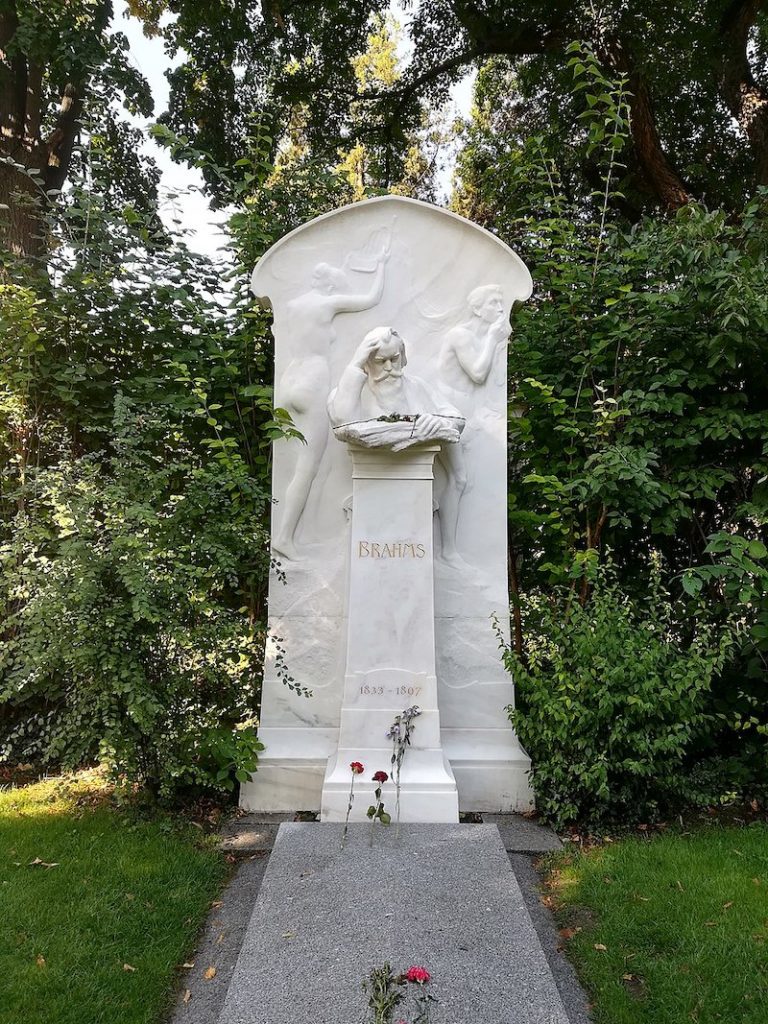One of the Romantic period’s more celebrated composers, Johannes Brahms, was born on May 7, 1833, in Hamburg, Germany. Being the son of a musician, Brahms grew up surrounded by music. Brahms began his music career as a pianist, later becoming a composer.
Brahms had high expectations for himself and destroyed any composition he thought wasn’t good enough. He wrote symphonies, concertos, chamber music, and piano music throughout his career. In this article, you’ll learn some of the most interesting facts about this great man.

1. He Was a Child Prodigy
Brahms began his musical career at the ripe old age of seven when he began playing the piano.
It didn’t take long for his family to notice his talent and he was soon studying with a teacher named Otto Cossel.
When an American agent heard Brahms perform at a public concert in 1843, he invited the child to tour America.
Brahms was too young to go to America but he was sent to study with Eduard Marxsen, a well-known teacher in Hamburg.
He began playing piano recitals and composing in 1848.
He sent some of his compositions to fellow german composer Robert Schumman for feedback.
However, Schumann returned the packages unopened.
As an adult, he destroyed most of his early compositions out of embarrassment.
2. He Helped Support His Family
Brahms was born into a poor family.
As a teenager, Brahms used his musical talent to help support his family by playing the piano in dance halls, brothels, inns, taverns, and along city docks to supplement their income.
A fact that early biographers found so shocking they often omitted it from his life story.
3. Became Good Friends with Robert Schumann

Schumann snubbed Brahms early in his career, but upon finally hearing Brahms’ compositions, they impressed him so much that he penned an article, ‘Neue Bahnen’ (‘New Paths’) for the Neue Zeitschrift für Musik praising young Brahms.
Schumann argued Brahms was capable of toppling the New German School of Liszt and Wagner.
Brahms was so close to Schumann and his wife Clara that he was considered part of the family.
When Schumann died tragically in 1856, he remained close friends with Clara.
4. He was Very Self-Critical
Brahms was highly self-critical and known to destroy compositions that didn’t live up to his expectations.
He spent years writing his first symphony before letting it be performed, believing people expected him to be the next Beethoven.
Timidity and modesty plagued him, and unlike other composers, he wasn’t good at promoting himself.
He called his Double Concerto for Violin, Cello, and Orchestra (Opus 102), a “piece of folly” in a letter to a close friend in New York.
5. War of the Romantics
Brahms was caught up in a feud between the New German School and conservative romantic composers like himself.
The New German school wanted to push musical boundaries, encouraging a radical approach to music.
The school’s detractors, including Brahms, found the music overly dramatic.
Both groups believed they were carrying on Beethoven’s work.
The conservatives held that nobody could surpass Beethoven’s greatness, while the New German School believed his music was the beginning of a new musical age.
6. He Took 20 Years to Finish His First Symphony
Brahms started composing his first symphony (Opus 68 in C minor) in 1854, but due to his perfectionism, the public had to wait 22 years to hear it.
The composer wasn’t happy with the symphony until it had undergone serious edits.
Initially, the symphony wasn’t very successful.
However, he found an audience for the symphony in Vienna, considered the capital of classical music.
7. Historians Believe He Was in Love with Clara Schumann

Brahms had a close relationship with Clara Schumann, who was 14 years his senior.
Although it’s unclear what type of relationship they had, historians believe Brahms was in love with her.
He comforted Clara after her husband Richard’s death.
Historians allege the couple destroyed the love letters they had written to each other.
During Brahms’ brief engagement to another woman, he maintained his close relationship with Clara.
In the end, Brahms broke off the engagement and never married.
8. Grief Inspired German Requiem (Opus 45)
Composed the year following his mother’s death, German Requiem was Brahms’ longest composition.
Brahms was overwhelmed with grief after his mother’s death, and historians believe his grief inspired him to compose the German Requiem.
The premiere of the composition was a failure, with the timpanist drowning out the other musicians after misreading the dynamics.
However, it went on to become the work that placed Brahms among history’s greatest composers.
9. He Was Buried Alongside Other Great Composers

Brahms died of cancer in 1897 at the age of 63 years old.
His last appearance was at the performance of his Symphony No. 4.
His final resting place is in the Vienna Central Cemetery in an area reserved for dignitaries.
Beethoven, Schubert, Johann Strauss, and Arnold Schoenberg are all buried at the same cemetery, which also includes a memorial to Mozart.
10. He Gave Up Composing at 57 years old
By the time he was 57 years old, Brahms was ready to give up composing.
He told a friend that he “…had achieved enough; here I had before me a carefree old age and could enjoy it in peace.”
Brahms had difficulty keeping his word and produced several masterpieces late in life, including his Clarinet Sonatas, Trio, and Quintet.
11. He Loved the Great Outdoors
Brahms often took long walks in nature when he wasn’t touring for concerns.
He enjoyed vacationing in Switzerland and Italy to get away alone and compose away from everyday distractions.
He’d go to a circus and loved merry-go-rounds.
He was a child at heart and took candy with him on his walks to share with the kids in his neighborhood.
Final Thoughts
Brahms produced various piano sonatas, over 200 lieders, several string ensembles, and chamber pieces during his long career.
Although he was well-known for his temper, he also had a giving side.
Brahms became one of the three Bs, Bach, Beethoven, and Brahms, forever cementing his legacy as one of history’s greatest composers.
